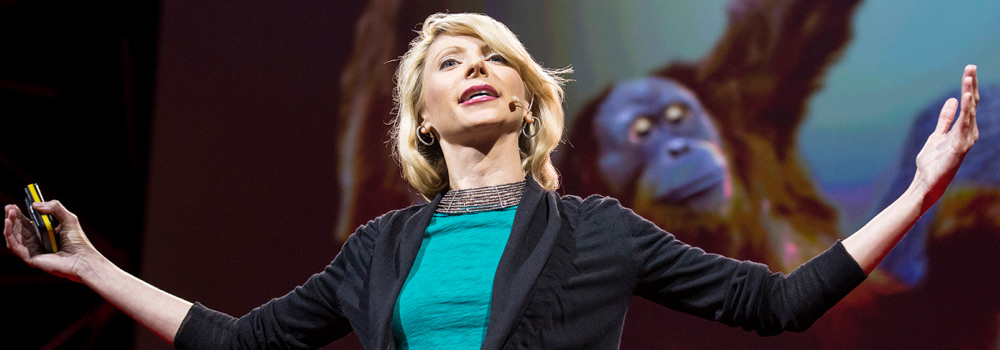“I’m not supposed to be here,” Amy Cuddy told herself on the night before her first-year talk during her studies at Princeton University. It was a moment where her anxiety started to take over her mind; she felt overwhelmed, or more accurately – powerless on the fact that she had to give a 20-minute talk to 20 people who seemed to outsmart her two-fold.
Amy had a severe car accident when she was 19; she was thrown off from the car and rolled several times over. The next thing she remembered was waking up in a head injury rehab ward, only to learn that her IQ had dropped by 2 standard deviations. When she thought things couldn’t get any worse, her college had withdrawn her from her studies after the accident.
Devastated is an understatement in her case. Amy was known for her exceptional intelligence since she was a kid. She had been identified as the smart kid in her circles of friends and family and was called the “gifted” child. Nothing leaves people feeling more powerless than having their core identity removed from their life. How would LeBron James feel if someone were to tell him that he couldn’t play basketball anymore, which is the only thing he’s good at? Amy was disoriented and shattered beyond repairs. People told her that there were other things that she could choose to do, but going back to college was not one of them. Despite their opinions, Amy did go back to college because giving up was never her option.
She worked, got lucky, and worked again. It took her 4 years longer than her peers, but she eventually graduated from college. She convinced her angel advisor, Susan Fiske, to take her on, and that was how she ended up at Princeton.
The night before her first-year talk at Princeton, horrors struck her. She was so frightened by the mere thought of people finding out about her impaired intellectual capabilities that she picked up her phone and called Susan. “I’m quitting,” is the first thing that she said. Before she even realized it, what came out on the other side of the line took her breath away. It was as if the last missing piece of herself was being glued back together, and it went like this: “You’re not quitting because I took a gamble on you. You’re going to stay, and this is what you’re going to do – You’re going to fake it.”
“You’re going to do every talk you ever get asked to do; you’re just going to do it, do it, and do it.
Even if you’re terrified and paralyzed or having an out-of-body experience, you’re just going to do it until you have this moment where you say, ‘Oh my gosh, I’m doing it, like I have become this, I am actually doing it!'”
And that was all she did during her 5 years in grad school: she faked it until she made it. After graduating, Amy moved between universities and worked as an assistant professor: a few years at Rutgers University, some at Northwestern University, and eventually, she ended up at Harvard University and worked as a lecturer.

For a long time, the thought of “I’m not supposed to be here” had been buried deep in Amy’s mind. However, that changed one day at the end of her first year at Harvard. She became worried about one of her students who hadn’t spoken up in class the entire semester. Participation accounted for half of the student’s grade, and Amy was concerned that the student might fail. She decided to confront her and said, “Look, you need to participate, or else you’re going to fail.”
Amy didn’t know the student well, but a couple of days later, the student showed up at her office feeling defeated. Looking up at Amy, she uttered, “I’m not supposed to be here…”
At that moment, Amy realized two things. First, she thought to herself, “Oh my gosh, I’m not feeling this way anymore!” It reminded her of how she used to feel during her own freshman year. Second, she understood that the student did belong there. Amy knew that she could fake it until she made it, just as she always had. So she looked back at the student and said, “Yes, you are! You are supposed to be here! And tomorrow, you’re going to fake it. You’re going to go into the classroom and give the best comment ever!” And that’s exactly what the student did. The next day, she made the best comment in the class. Everyone turned around, looked at her, and thought, “Oh my god, I didn’t even notice she was sitting there!”
Months passed, and the student came back to visit Amy. It dawned on Amy that not only had the student faked it until she made it, but she had also faked it until she became it.
“Don’t fake it till you make it. Fake it till you become it.”
Amy Cuddy
P.S. This story was adapted from Amy Cuddy’s TED talk “Your Body language may shape who you are”. In the next post, I’ll be sharing the science behind the idea of “Fake it till you make it”.
References
- Cuddy, A. (2019). Your body language may shape who you are. [online] TED. Available at: https://www.ted.com/talks/amy_cuddy_your_body_language_shapes_who_you_are#t-382998 [Accessed 8 Aug. 2019].




